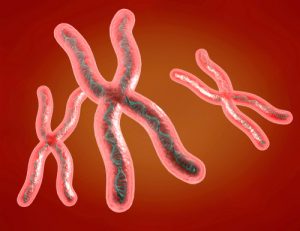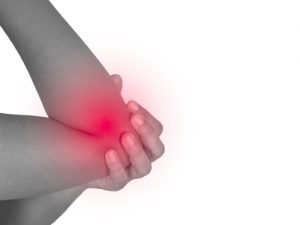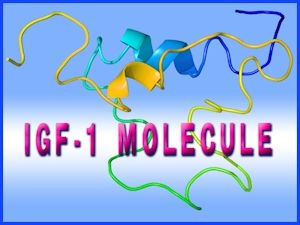
We've all heard the old maxim — Calories In, Calories Out — regarding weight loss. There's a lot of truth to that, of course. How much we eat directly contributes to how much we weigh.
That's not the whole story, though. There are a lot of biological, genetic, and physiological factors at play when it comes to how our bodies maintain, store, and get rid of body fat.
The goal of this article is to inform you of some of the circumstances which complicate this supposedly simple equation.
Video Link: https://vimeo.com/290593515
Video Download: Ten Common Contributors To Obesity That Make It Hard To Lose Weight
Video Stream: Ten Common Contributors To Obesity That Make It Hard To Lose Weight
Video Link: https://vimeo.com/290593390
Video Download: Ten Common Contributors To Obesity That Make It Hard To Lose Weight Part 2
Video Stream: Ten Common Contributors To Obesity That Make It Hard To Lose Weight Part 2
Genetics and Weight Loss
There is an active genetic component to obesity and weight loss. It's not a total correlation, but there are genetic influences that slow down and speed up our metabolism and our body's ability to readily store or eliminate fat.
This doesn't mean that weight loss is impossible, but that it takes a more conscientious effort to lose weight for some people than it will for others.
 There is no particular “fat” gene, but there are many that relate to the body fat percentage and metabolism.
There is no particular “fat” gene, but there are many that relate to the body fat percentage and metabolism.
Some genes make you more likely to cave on your diet or choose unhealthy foods.
Other genes increase hunger and make it harder to experience satiety. Diabetes and insulin resistance also have a strong relationship with genetics.
Others merely prioritize preserving body fat at a higher efficiency than is healthy for the average person with the average American lifestyle.
Recent medical evidence has even shown that genetic influences can also change over time or are impacted by environmental cues.
These influences can even affect the genetics of your children. For example, starvation and intense stress experienced by the parents can alter the genetic activity of the child.
Though we are quickly learning the genetic code of obesity, it's a complex equation that we will be learning more about for generations to come, and we will be able to use that system to further protect men, women, and children from the dangers associated with obesity, type-2 diabetes, and other weight-associated health issues.
Pollution and Obesity
A more complex factor in Obesity and weight gain is pollution. There is compelling evidence that breathing in polluted air boosts your obesity risk.
In one particular study, rodents were exposed to literal Beijing smog, imported to Duke University from China. After nineteen days of exposure, pregnant rodents experienced abnormal weight gain, insulin resistance, and increased cholesterol.
After birth, the offspring were overweight, as well. It appears that inflammation plays an active role in these negative health factors associated with obesity.
The Influence of Inflammation on Obesity
 As we mentioned, part of the reason that pollution affects weight appears to be the result of inflammation.
As we mentioned, part of the reason that pollution affects weight appears to be the result of inflammation.
There is a strong correlation between inflammation and body fat. Inflammation makes it easier to gain weight, and losing weight reduces inflammation.
There is clear evidence that people that are obese suffer from more brain and heart disorders, as well as arthritis and joint inflammation.
There is also a higher incidence of C-Reactive Proteins, Cytokines that are a direct precursor for inflammation.
We have some evidence regarding how obesity is worsened by inflammation. Inflammation makes it harder for the body to process and utilize both insulin and leptin.
Insulin helps our bodies get rid of fat and burn energy, while leptin helps us feel full. Beyond this physiological component, inflammation makes it harder to get up and get moving, which is ironic, because exercise is one of the best ways to control both inflammation and obesity.
One scientific way that you can reduce inflammation is to undergo a Food Sensitivity Testing to expose any underlying triggers that you may have in your diet that cause inflammation or make inflammation worse.
Gut Bacteria and Obesity
Our genes and our bodies aren't the only things that control how we process food. Gut bacteria in the intestines play a role in transforming the foods that we eat and absorbing nutrients.
Our bodies experience mutual symbiosis with certain forms of bacteria. We gain nutrients and experience improved digestive health, and they get to use our digestive system as a host.
There is also evidence that specific gut microbiomes can contribute to obesity, as clearly demonstrated in animal testing.
Bacteria that benefit our bodies are often called prebiotics, and nutrients that help pre-biotics thrive are known as probiotics. Many supplements contain prebiotics, and yogurt and other cultured foods contain an abundance of pre-biotics.
Allergies and Obesity
 As we mentioned previously, inflammation is a primary contributor to obesity risk.
As we mentioned previously, inflammation is a primary contributor to obesity risk.
Under the subset of inflammation are allergies. Allergies are an immune over-reaction to outside stimuli, such as pollen, peanut, and prescription allergies.
People that suffer from diseases such as eczema, allergic rhinitis, and asthma are more likely to experience obesity, as well as those that take antihistamines, one of the most common treatments for allergies.
Food allergies are a definite cause of obesity. Many people have mild food allergies that stimulate a mild allergic reaction while not being severe enough to lead to acute health problems.
For example, it's easy for patients to go years or decades with a lactose- or gluten-intolerance without realizing the root cause of their lack of energy, obesity, or stomach discomfort.
Nutrition and Obesity
 One of the reasons that obesity is so high in the United States is the result of malnutrition.
One of the reasons that obesity is so high in the United States is the result of malnutrition.
Many people get enough calories from carbohydrates, sugar, and other sources of macro nutrition, but don't get enough vitamins and minerals from healthy sources, which can cause people to gain weight, or have trouble losing weight even with restricted calorie intake.
There are many issues related to nutrient deficiency that contributes to obesity.
For example, people that don't get enough chromium, magnesium, and Omega-3 Fatty acids are more likely to experience issues with insulin resistance and diabetes. CoQ10 is a central component of mitochondrial function.
If you don't get enough, this directly impairs cellular metabolism. Still, other nutrients such as Magnesium and B-Complex vitamins reduce energy levels, making it harder to exercise or maintain endurance in physical activity.
Hormone Imbalance and Obesity
You may not realize it, but Hormone Balance is one of the most critical aspects of health and wellness, and this is also true when it comes to weight control.
For example, the Thyroid Gland is the control center for human metabolism, and individuals that suffer from Hypothyroidism are at a tremendous disadvantage went it comes to losing weight and keeping it off.
Testosterone Deficiency is a common cause of weight gain for men, as Age-Associated Low-T (or Andropause) causes the body to lose muscle mass and metabolism, both of which vastly increase the risk of weight gain and obesity.
Two common causes of Hormone-Related Weight Gain in women are Estrogen Dominance and Polycystic Ovarian Syndrome (PCOS). When Estrogen Levels are high concerning other feminine hormones, this can make it devilishly hard to lose weight and keep it off.
A form of Hormone Imbalance that affects both men and women in high numbers is insulin resistance, which makes it harder for the body to both breakdown body fat deposits and properly utilize energy from carbohydrates.
Human Growth Hormone is another hormone intrinsically related to metabolism, and another hormone that is prone to age-related deficiency.
HGH is the primary modulator of cellular metabolism, meaning that it controls cell replication and division. HGH Deficiency slows down the body's normal physiological processes, which can lead to weight gain, lack of energy, and a variety of other symptoms.
Stress, Anxiety, and Obesity
 Stress influences the release of two essential hormones, cortisol and adrenaline.
Stress influences the release of two essential hormones, cortisol and adrenaline.
Adrenaline motivates the fight-or-flight response, whereas Cortisol is the hormone associated with extended periods of stress.
Cortisol can be a significant problem for people that suffer from chronic anxiety and stress because it both encourages the body to store fat and build inflammation.
Prednisone is a commonly used form of Bio-Identical Cortisol that is a steroid used to treat inflammation and causes the same issues as natural Cortisol.
In fact, monitoring the common side effects of Prednisone (increased diabetes risk and weight gain) is part of the reason that we know so much about the impact of cortisol on the body.
There are many natural ways to control stress, including improved sleeping habits, exercise, yoga, and meditation.
Medications Can Lead to Obesity
 There are a variety of prescription and non-prescription medicines that can affect weight maintenance.
There are a variety of prescription and non-prescription medicines that can affect weight maintenance.
Antacids and antibiotics can degrade microflora in the gut.
Anti-depressants often directly lead to overeating via appetite stimulation. Beta-Blockers make it harder to burn existing body fat.
Hypertension medications and statins make it harder to exercise vigorously and contribute to fatigue.
Different drugs have different effects on your metabolism, so always talk to your doctor about how your medications may interact with your weight and your metabolism.
Diet and Obesity
Ironically enough, the way that you go about your diet can have a tremendous effect on your ability to burn calories, utterly unrelated to your daily caloric consumption.
For example, radical diets suppress your metabolism, and your body quickly reacts by trying to preserve body fat at the expense of muscle mass. The effect of this impacts your long-term weight loss goals in two ways.
First, it makes it much harder to burn body fat. Second, you are more likely to gain all the weight back and more because of impaired basal metabolism.
Muscle burns more calories than fat, and your body will have less muscle mass after a crash diet, meaning that your body will need fewer calories, but you'll start eating the same amount that you did before you lost all the weight.
Remember, the most effective way to lose weight isn't a diet, but a lifestyle change which promotes healthier choices, enhanced self-awareness, and increased activity level without total denial.
References
The Very Best Way To Lose Weight & Keep It Off
How to Lose Weight in Your 50s and 60s
Contact Us For A Fast And Professional Response

- The Other Aspect of Dieting – Removing Chronic Stressors From Your Life [Last Updated On: February 9th, 2025] [Originally Added On: September 9th, 2020]
- The Flaws of Six Popular Diets [Last Updated On: June 6th, 2025] [Originally Added On: September 20th, 2020]
- Purchase Sermorelin Acetate Injections Online [Last Updated On: February 8th, 2025] [Originally Added On: September 23rd, 2020]
- Eating Right On a Low-Glycemic Diet [Last Updated On: April 20th, 2025] [Originally Added On: October 1st, 2020]
- The Benefits of Intermittent Fasting [Last Updated On: May 16th, 2025] [Originally Added On: October 2nd, 2020]
- Eat Healthier with White Flour Alternatives [Last Updated On: August 26th, 2025] [Originally Added On: October 3rd, 2020]
- How Can Sermorelin Enhance Your Life? Losing Weight and Battling Premature Aging With Sermorelin [Last Updated On: April 1st, 2025] [Originally Added On: October 5th, 2020]
- Benefits and Risks of HGH Therapy: 2018 Update [Last Updated On: April 15th, 2025] [Originally Added On: October 6th, 2020]
- Have You Heard About the 21st Century Breakthroughs in Hormone Replacement Therapy? [Last Updated On: September 16th, 2025] [Originally Added On: October 7th, 2020]
- The Importance of Omega-3 Fatty Acids [Last Updated On: June 4th, 2025] [Originally Added On: October 8th, 2020]
- The Relationship Among Testosterone, Obesity, and Alzheimer's Disease [Last Updated On: August 25th, 2025] [Originally Added On: October 9th, 2020]
- Major Alzheimer's Risk To Continued Sleep Deprivation [Last Updated On: April 29th, 2025] [Originally Added On: October 10th, 2020]
- Should You Choose the Ketogenic Diet? [Last Updated On: May 7th, 2025] [Originally Added On: October 13th, 2020]
- HGH and Insulin: The Primary Agents of Energy Bio-Availability [Last Updated On: March 24th, 2025] [Originally Added On: October 14th, 2020]
- How Can Women Maximize HGH Production? [Last Updated On: April 5th, 2025] [Originally Added On: October 18th, 2020]
- Micro Nutrients Versus Macro Nutrients [Last Updated On: January 11th, 2025] [Originally Added On: November 4th, 2020]
- Some of the most effective Weight Loss Injection and Diet Injection Programs [Last Updated On: June 10th, 2025] [Originally Added On: November 6th, 2020]
- Information About Chelation Therapy [Last Updated On: April 9th, 2025] [Originally Added On: November 9th, 2020]
- Seven Ways to Help You Burn Calories Faster and More Effectively [Last Updated On: March 28th, 2025] [Originally Added On: January 21st, 2021]
- Don’t Eat These Foods When Taking Sermorelin Acetate for HGH Deficiency [Last Updated On: February 14th, 2025] [Originally Added On: February 3rd, 2021]
- Understanding Aerobic vs. Anaerobic Exercise [Last Updated On: May 13th, 2025] [Originally Added On: March 4th, 2021]
- Physician’s Fact Sheet: Vitamin E [Last Updated On: January 10th, 2025] [Originally Added On: March 8th, 2021]
- Naturally Losing Weight with Lifestyle Changes Keeps the Weight Off for Good [Last Updated On: May 4th, 2025] [Originally Added On: March 27th, 2021]
- The Health Benefits of the Amazing Strawberry [Last Updated On: February 9th, 2025] [Originally Added On: May 8th, 2021]
- Need Better Sleep? Try Eating Pistachios Before Bed! [Last Updated On: January 21st, 2025] [Originally Added On: February 16th, 2022]
- Three Kinds of Body Fat and How They Impact Your Health [Last Updated On: August 12th, 2025] [Originally Added On: April 12th, 2022]
- Pistachios: You’re Not Nuts [Last Updated On: January 4th, 2025] [Originally Added On: August 3rd, 2022]
- 7 Surprising Things That Mess With Your Hormones [Last Updated On: February 26th, 2025] [Originally Added On: September 5th, 2022]
- Adding Cranberries to Your Diet can Really Add Zest – and Health – to Your Life. [Last Updated On: September 27th, 2025] [Originally Added On: January 10th, 2023]
- Raspberries – Delicious Portal to Shining Good Health [Last Updated On: October 1st, 2025] [Originally Added On: January 18th, 2023]
- Study Shows Cialis and Viagra Users have 25% Lower Early Death Rates [Last Updated On: March 14th, 2025] [Originally Added On: February 19th, 2023]
- Introduction: Understanding the Multifaceted Nature of Obesity [Last Updated On: March 2nd, 2025] [Originally Added On: March 2nd, 2025]
















